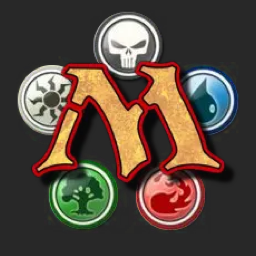Like it’s the most annoying format every where 2 year olds always complain about your deck and don’t actually want you to win but just shuffle cards around for no reason and if you ever win they all just complain that you are playing a good deck (which is the entire point of the game), because all the annoying salty people don’t let others play what they want there is no interaction and the boards just fill up with 90 creatures and stupid 5 card combos that shouldn’t be playable and it’s a huge mess where no one even understands what’s going on, like how is this the most popular mtg format


We’re just repeating ourselves and talking in circles now.
When building a casual EDH deck, the point isn’t to win. It’s just not.
That’s what I was getting wrong, too. I was like “how can I build a deck that can win when you keep springing these arbitrary rules on me like no land destruction and no stax? You’ll just have an endless list of things that you’ll think is ‘too good’; if I find other things that aren’t on your ban list you’ll just add it to the banlist. And you bully me if my deck is too weak. And the games themselves are kingmakery bullshit where you hurt the leader just for leading.”
That’s where I was. So I get it.
I’m trying to explain another way to view it, where I’m now—if you don’t wanna hear it, that’s fine. You don’t have to play EDH.
But if you’re not even trying to understand, it’s not fair of you to slag all EDH players, either.
Have you ever heard of a boardgame called Zendo? It’s pretty great. Or, better yet, 20 Questions.
In 20 Questions, one player comes up with a secret thing like “Brad Pitt” or “A pencil lead” or “My mom’s shoesize” or “The feeling of regret when missing out on bowling night” or “running with scissors”. And then the other people ask yes & no questions until they can figure it out. The goal of the people guessing is to find out the secret thing. For them, that’s “winning” in some sense of the word. But for the secret-keeper, they aren’t trying to come up with the universe’s hardest word. That just wouldn’t work. It’s easy for them to come up with something that the other people don’t even know exists! The secret-keeper’s job isn’t to win, it’s to come up with an enjoyable, challenging, but possible secret for them to guess.
Same goes for building an EDH deck. You’re trying to create an enjoyable challenge for your friends while also participating with your own fun in the challenges they’ve brought to the table.
Yeah, yeah, EDH as a format has its fair share of fundamental brokennesses that inevitably there are always going to be a high risk of bad experiences, but if you’re still in “the point of the game is to win” mode, you’ve yet to learn the 101 foundational thing which is that EDH is using the Magic cards for something else. You might think that thing is a waste of good Magic cards, that’s fine, but it’s another thing to do with them beyond trying to win.
You have a good basic point: The reason game designers put victory conditions into games in the first place is to guide play. Faffing around with cardboard with pictures and weird spell names on them is a pretty weird human activity in the first place. The thing that guides and structures that weird activity, normally, is that both players are striving for that W.
Casual EDH doesn’t have victory as a goal (in the deckbuilding stage). We’ll have to reach for other forms of guidance and structure there. Such as what would be entertaining and fun for ourselves and for the group.